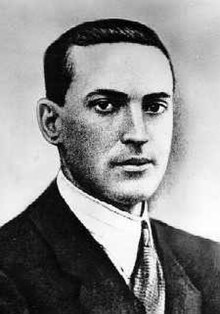Hello classmates and teacher.
Today I am going to tell you about one important person in
psychology, Lev Vygotski. He was born in 1896, in Sovietic Republic. He studied medicine
and law in Statal University of Moscow and returned to his native village to teach psychology and
literature. He was an active intellectual in his área on the context of Russian Revolution and he participated
in many teaching centers and community initiatives.
In 1919 he got sick of tuberculosis and he suffered many
relapses in the rest of his life.
He married in 1924 and had two children. Finally in 1939 he died
after finish the ultimate chapter of his book “thought and speech”.
Lev Vygotski worked in some topics. The center of his work
is the human development. He did research
with childrens and he discovered that the main is cooperation and it needs to of
development function well. A child can learns a lot more and improve his skill if
is helped by an adult or other children.
He also studied psychology of art, the importance of
children`s game, etc.
I like him because he studied very interesting topics for
psychology and pedagogy and he made his work
from a new perspective influenced by marxism and psychoanalysis giving
an important role to social interaction.

I love it, in fact Vygotsky, is one of the most studied characters in my career, especially social learning that this teaches character..
ReplyDeleteI see you
Congratulations, Alvaro! You really have improved your writing!
ReplyDeleteSome minor comments:
The word "children" is plural, so don´t say "childrens".
It is 1 child 2 children.
Also," He married in 1924 and had two children. Finally in 1939 he died after HE finishED the ultimate chapter of his book “Thought and speech”.
Lev Vygotski worked ON some topics. The center of his work is (the) human development.
He did research with children and he discovered that the main ISSUE is cooperation and AND THAT it needs to of development function well (NOT CLEAR)!.
A child CAN LEARN a lot more and improve his skill if HE is helped by an adult or other children..."
Modal verbs, such as CAN, SHOULD, WILL, WOULD, are followed by the base form of the verb (the verb with no conjugation: learn, go, think, etc.
2 pts